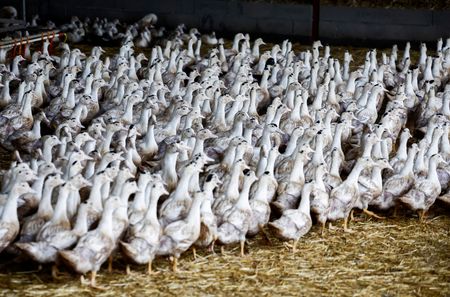By Ari Rabinovitch and Nidal al-Mughrabi
JERUSALEM/CAIRO (Reuters) -Israel said on Sunday it had withdrawn more soldiers from southern Gaza, leaving just one brigade, as it and Hamas sent teams to Egypt for fresh talks on a potential ceasefire in the six-month conflict.
Israel has been reducing numbers in Gaza since the start of the year to relieve reservists and is under growing pressure from its ally Washington to improve the humanitarian situation, especially after last week’s killing of seven aid workers.
The military spokesperson did not give details on reasons for withdrawing soldiers or numbers involved. But Defence Minister Yoav Gallant said the troops will be preparing for future operations in Gaza.
Both Israel and Hamas, the Islamist movement that controls Gaza, confirmed they were sending delegations to Egypt.
Hamas wants any deal to bring about an end to the war and withdrawal of Israeli forces. Israel has said that, after any truce, it would topple Hamas, which is sworn to its destruction.
Israeli Prime Minister Benjamin Netanyahu said there would be no deal without a hostage release and that he would not cave to international pressure. Hamas says an agreement must include freedom of movement of residents across the Gaza Strip.
More than 250 hostages were seized and some 1,200 people killed during Hamas’ Oct. 7 attack, according to Israeli tallies. More than 33,100 Palestinians have been killed in the Israeli offensive, according to the health ministry in Gaza.
Around 130 hostages are still being held in Gaza. Asked about troop withdrawals from the enclave, Israel’s Chief of the General Staff Herzi Halevi told reporters that the military was adapting its methods to what has been and will be a long war.
Gallant said Israel will press on with the war until Hamas no longer controls Gaza or threatens Israel as a military group.
“The forces are exiting and preparing for their next missions,” Gallant said at a meeting with military officials, according to a statement from his office, and “also their coming mission in the Rafah area”.
PALESTINIAN HOPES
Israel says an incursion into the Rafah area, near the border with Egypt, is needed to eliminate Hamas but anxious foreign powers have said it could exact an unacceptable toll on civilians, with more than a million people sheltering there.
Israel says it will evacuate civilians before launching an incursion.
Palestinian residents of the southern Gaza city of Khan Younis, which has come under Israeli bombardment in recent months, said they had seen Israeli forces leaving the centre of the city and retreating to eastern districts.
Medics said they found at least 12 Palestinian bodies in the area. Some residents from Khan Younis, who have been sheltering in Rafah, began returning to their neighbourhoods after the Israeli troops left.
“It seems at the end it may be a happy Eid,” said Imad Joudat, 55, who lives with his eight-member family in a tent in Rafah, referring to the Muslim Eid al-Fitr holiday that starts mid-week.
“The occupation withdrew forces from Khan Younis, the Americans are pressuring after some foreigners were killed and Egypt is holding a big round with the Americans, the Israelis, Hamas and Qatar. This time we are hopeful,” Joudat told Reuters via a chat app.
Israel is under increased pressure from the United States, with President Joe Biden demanding that it improve humanitarian conditions in Gaza and work towards a ceasefire, and saying that U.S. support could depend on that.
It was the first time Biden, a staunch supporter of Israel, has sought to leverage U.S. backing to influence Israeli military behaviour. The U.S. is a major supplier of arms to Israel.
Biden has also urged the leaders of Egypt and Qatar to pressure Hamas to agree to a ceasefire and hostage deal ahead of a fresh round of talks in Cairo.
Israel is also on alert for a possible retaliatory attack from Iran in reaction to the killing of Iranian generals on April 1.
(Reporting by Ari Rabinovitch, Maayan Lubell, Nidal al-Mughrabi; Editing by Angus MacSwan, Andrew Heavens, Andrew Cawthorne and Giles Elgood)



















